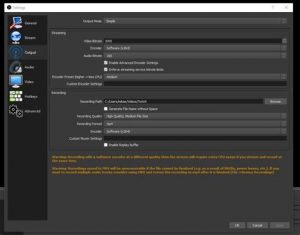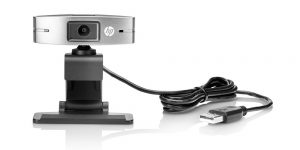
How do I know if my computer has been hacked?
This post may contain affiliate links.As an Amazon Associate I earn from qualifying purchases.If your PC or Mac has been hacked, you may notice that your computer or internet connection has slowed down dramatically. It’s important to note that this is most likely a sudden change – one day your computer will be fine, and the next day your computer’s fans will kick into overdrive during even the simplest tasks.
What should I do if I suspect my device has been hacked?
So what should you do if you suspect your device was hacked? If you suspect that your phone is infected, run mobile anti-malware software (preferably run more than one vendor’s offering) and remove any apps that you don’t recognize. If possible, wipe the device, restore factory settings, and reinstall apps from trusted appstores.
Can someone hack me if I just opened an email?
If a hacker put something in your computer to make you think you’ve been hacked, you actually have been hacked. Thanks! Can I be hacked by watching YouTube? Thanks! Can someone hack me if I just opened a suspicious email? No, it’s only if you click on a link and/or an attachment that is in the suspicious email. Thanks!
What should I do if my Facebook account has been hacked?
If the hack took place well-before you created your account, you’re probably fine. If the hack took place any time after you created your account, change your password for the website and any connected services (e.g., your email address) immediately.

The Mac is touted as a device that is hard to hack, but it can still happen. Just like with Windows and HP, hackers have found ways to infiltrate Mac networks and hardware. But what signs point to a hacked Mac?
In this article, we’ll go over 9 ways to tell if your Mac has been hacked, how it’s possible it’s been hacked, and how to fix it if it has been hacked. Read on to learn more.
9 Ways to Know If Your Mac Has Been Hacked
Internal and external issues can all be warning signs of a hacked device. The physical inner workings of a device’s mechanical engineering can be a tell-tale sign of a hacked Mac, as are external issues such as an appearance of more ads or suddenly changed passwords.
Below are the top nine examples of a hacked Mac:
- A Mac that’s running slowly: A device running slower can be a clear indication of a malware issue, a software made to corrupt an operating system.
- Louder than usual fans: Also due to a malware issue, malware causes systems to run hot and causes more strain on the mechanical system.
- Toolbars and browser add-ons: Randomly added browser add-ons and toolbars that you did not install on your own accord can show that your Mac has been hacked.
- Greater number of pop ups then usual: More frequent ads or pop ups can be a clear indication of a malware issue or virus.
- A changed home page: A changed home page is a clear indication of a system ‘hijacking’, usually used to lead the user to dangerous websites to cause further damage to their operating systems.
- Redirected searches: Being redirected to different search browsers is a clear indication of a virus, once again used to lead the user to more dangerous websites where information can be stolen and further damage can be caused to the operating system.
- Odd webcam behavior: If the user notices saved videos or audio files they did not make to their computer, or that the webcam light is on when they did not turn it on, it’s a clear indicator that the webcam has been hacked.
- Passwords no longer work: If changed passwords and then changed security questions are noticed, it’s a clear indication that the Mac user has been hacked.
- Freezing or crashing device: Malware or viruses can cause extreme stress on a computer operating system and cause issues such as freezing or crashing.
There’s still a lot more to know about a Mac being hacked, so stick around and we’ll cover everything you need to know.
What Can Hack Your Mac?
Now that you know your Mac can be hacked and some examples that show it has been hacked, you may be wondering what can hack your Mac.
Here are some types of viruses and malware that can hack your Mac:
| Types of Viruses & Malware | How the Virus Works |
| Trojans and viruses | A Trojan is a type of virus, the difference between viruses and Trojans is that Trojans cannot execute and duplicate themselves like a virus can. |
| Worms | A worm is a type of malware that can spread to other computers and infect them while still causing damage on the original device. |
| Ransomware | Ransomware denies the user access to programs or files on their device in return for a payment. |
| Rootkits | Rootkits allow the hacker to gain access to a device without being revealed. |
| Phishing | Phishing involves fooling users on the internet into giving out personal information via links, emails and websites. |
| PUP’s (Potentially Unwanted Programs) | PUP’s are software (junkware) that you downloaded without the intent to, found often in software you did download on purpose. |
| Adware | Adware viruses are the pop ups and ads that show up as you browse or work on your device. |
| Fake antivirus programs | Fake antivirus programs are programs mimicking antivirus programs in order to gain access to your computer or laptop. |
| Cryptomining | Cryptomining viruses, not to be confused with legal crypto mining, attack the users device resources to search for hidden crypto currency. |
Now, let’s take a look at some of the major names of well-known malware and viruses breaking down Apple’s defenses.
Most Well-Known Viruses That Can Hack a Mac
So we know a Mac can in fact be hacked, but what exactly is hacking your device?
The most well known viruses and malware to attack Macs in 2022 are as follows:
- GoSearch22 (Pirri)
- Silver Sparrow
- LoudMiner
- ThiefQuest
- GravityRAT
- XCSSET
- CrescentCore
- DOK
Now, let’s take a look at how to prevent your Mac from being hacked.
How to Prevent Your Mac from Being Hacked
Although Apple has built a strong wall of protection between your Mac and the hackers of this world with Gatekeeper and the built-in xProtect antivirus, they still sometimes fail. But in most cases, when combined with known security measures, they protect your Mac well.
Below you will learn what these two programs are, how they protect your Mac, and what other precautions you can take to prevent your Mac from being hacked.
Use Mac’s Built-In Security Features
As mentioned above, Mac has two built-in security features: Gatekeeper and xProtect. But, what are they?
These two applications protect your Mac from being hacked by:
- Gatekeeper is Apple’s strict security guard. It warns you when applications or downloads look like they might cause trouble to your systems integrity and warn you of such before even allowing you to complete the download.
- xProtect reacts when you download a program or application from the internet that is verified by Apple but isn’t a Mac application, such as a program that would normally be run on Windows or HP. It’s the same program that gives pop-ups warning that the application is downloaded from the internet.
Now, let’s take a look at another method to prevent your Mac from being hacked.
Use an Antivirus Software
If Gatekeeper and xProtect fail, the other options are other antivirus softwares. Antivirus softwares are made to search for, prevent, detect and remove viruses from an operating software.
One well known antivirus is Malwarebytes. Not only does the software have both a free and a paid for plan, but it offers a 60 day money-back guarantee, a VPN for extra protection, and works on a number of operating systems including Mac.

